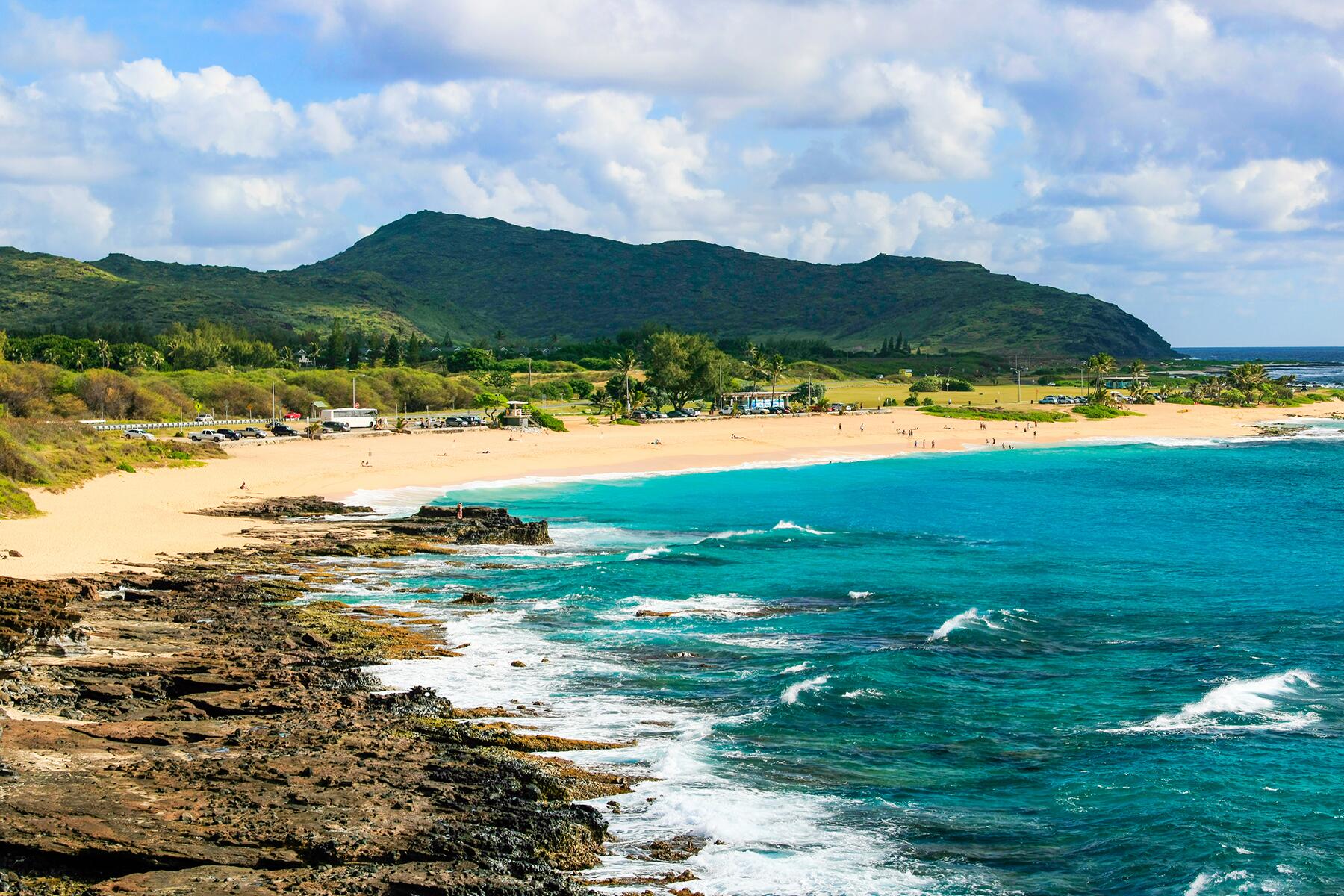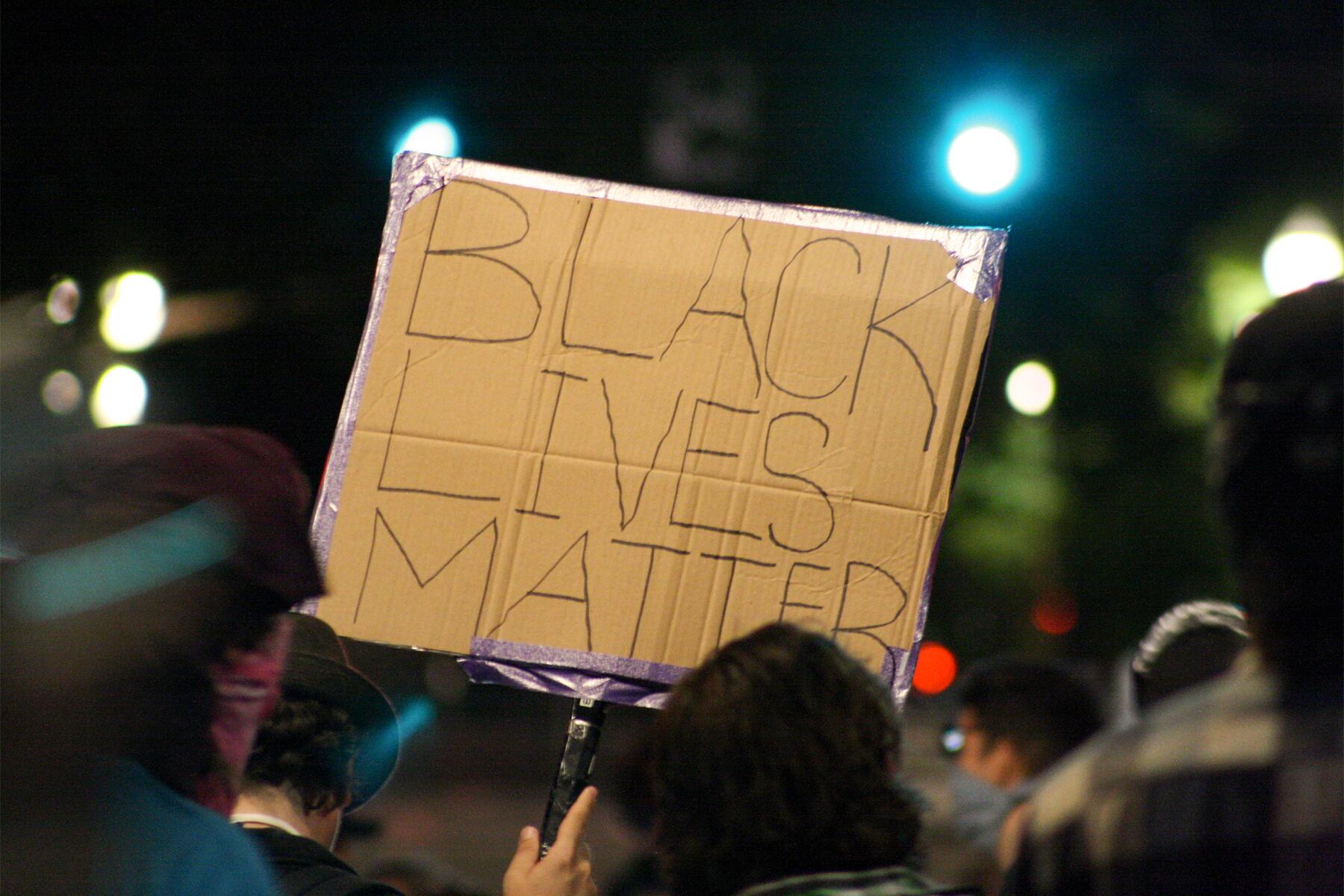As a white-majority city in Oregon, Portland's efforts to support its BIPOC neighbors can come off as performative.
“And now, for reparations…”
My ears perked up at the word and I stopped cutting through my French toast. I was sitting down for Sunday drag brunch with a few friends and, halfway through the performances, we had reached the interlude. The emcee beamed as they listed the land acknowledgments for the city now known as Portland, Oregon, and they proclaimed solidarity in fighting for those most marginalized in the community.
“So,” they concluded, raising a shot glass into the air, “we are giving shots to all of the Black diners here with us today!”
The crowd erupted in cheer, but a sense of dread coursed down my spine. I quickly glanced around the restaurant, but an employee was already sauntering toward me, one single shot glass balanced on their serving tray. I was the only Black person there.
Before I could feign a well-timed bathroom excuse, the server slid my plate to the side and placed my 40 acres and a mule—in the form of a tequila shot—in front of me. Panicked, I looked to the rest of my party, who were the only two Mexican people in the restaurant. Apparently, they weren’t disenfranchised enough to get free tequila.
Recommended Fodor’s Video
An easy observation could have clued any person in the building that I was not drinking alcohol that morning. For example, the cup of water in front of me that could have used a refill. Or my actual vocal insistence that I did not want the shot of tequila. But as I succumbed to peer pressure and brought the shot glass to my lips, I realized that it didn’t actually matter what I wanted or needed as long as it made them feel better.
In June 2020, Portland made national headlines, and this time it didn’t involve naked bike rides or psychedelic substances. In the wake of another police officer murdering an unarmed Black person, residents of Portland took to the streets in protest. Like many other cities around the nation, Portlanders started anti-racist bookclubs, bought enamel pins and window stickers denouncing racial prejudice, and created listicles of their favorite Black-owned restaurants that they suddenly remembered existed. However, Portland made the news because its residents protested for one hundred consecutive days, and it is the whitest major city in America. They must really care about their BIPOC neighbors.
The ethnic and racial demographic of Portland is not coincidental. Oregon entered the Union as a free state in 1859. However, it was also the only free state admitted with an exclusion clause against African Americans in its constitution. In fact, Oregon would go on to include three exclusionary clauses in its state constitution against African Americans and Black people to prevent and discourage them from living in Oregon, clauses and racist language that were not fully removed from the Oregon constitution until 2002.
Combined with Oregon’s history of Indigenous genocide, massacres of Asian laborers, and racial profiling for targeted deportation, it’s no surprise that Portland’s white, non-Hispanic, population accounts for 75.1% of the city’s demographic. But as long as everyone is an ally in the face of injustice, race shouldn’t matter. Right?
While headlines praised (or bashed) Portland’s loudly liberal commitments to racial equality, BIPOC business owners in the area experienced incongruous aftershocks. Black-owned businesses received massive upswings in traffic and sales, to the point where they had to scramble to increase their inventory orders to keep up with sudden demand—only for those customers to never return. Other community reactions were disingenuous straw man arguments: residents declaring that Portland’s most iconic (white-owned) businesses and restaurants were being destroyed in the process of uplifting Black-owned enterprises. They didn’t recognize Portland with all of these new and diverse faces.
Angel Medina started his first food and beverage venture in Portland five years ago and has since opened over eight Mexican-fare establishments, including República, named one of Portland’s top restaurants for 2021 by multiple publications. However, Medina and his staff have faced numerous incidents of harassment. República is especially prone to reviews by people who don’t even eat at the restaurant, but still give it one star because they don’t serve specific dishes, like margaritas, “cheap” street tacos, or chalupas. The negative reviews are never about the food or even the service, but rather that the restaurant isn’t operating how they assume a BIPOC-owned restaurant should operate. “They’re allies on their terms,” Medina states, recounting a time when he had to cut a customer off for drinks and the conversation immediately turned hostile because they felt Medina was not gracious enough that they were “supporting his people.”
The same people who go through a checklist of “inclusive practices,” recoil when a business dares to decide its own menu or priorities the safety of its staff and customers. “There is a hypersensitive button that exists here,” Medina explains. “That when you go into these conversations, you have to code-switch because the minute that your voice changes decibels or you speak to them in the same tonality, you become ABP [angry Black/Brown person].” Once that happens, the message becomes too emotional and invalid for defensive customers. It’s allyship until it’s inconvenient or uncomfortable.
However, the sense of community keeps many BIPOC-owned businesses going strong. “As imperfect as Portland continues to be, there’s a certain sense of collaboration that exists,” Medina agrees. During the past few years of heightened violence towards the Asian community, Portland’s AAPI food makers came together to create Rice Bowl Posse, a coalition focused on uplifting, supporting, and encouraging each other because the city has not prioritized addressing and protecting these businesses from targeted vandalism and harassment.
Neighborhood-led events such as the Come Thru Market and Vend Again Marketplace highlight BIPOC small businesses that otherwise face numerous additional hurdles getting a booth at the larger city marketplaces. Fitness studios like Seeking Space Yoga and Ecdysiast have created equitable programs and scholarships to make their classes more accessible to a wider range of people.
Tai Harden-Moore is an Equity Consultant and has lived in Portland off and on since 1998. “I do believe that folks in my area, and areas like mine, care about social issues faced by BIPOC communities,” Harden-Moore stated. “But I also believe there is a lot of performative allyship that is preventing us from having the real and difficult conversations that we need to have.”
One of the areas this is most apparent is in the Portland metro-area school districts. In summer 2021, the Newberg school board banned Black Lives Matter and PRIDE symbols. While the pushback on the ban was immediate, something Harden-Moore noticed was that many folks were upset and vocal about the banning of PRIDE symbols, but the conversation wasn’t as loud for Black Lives Matter symbols. “I wouldn’t go as far to say there was no support, because there was,” Harden-Moore clarified, “but as a Black woman, it felt like the support for Black Lives Matter was an afterthought; and to me, therein lies the problem. Black folks and BIPOC folks are not thought of first, even when [the discussion] is about us.”
The media makes it very easy to visualize Portland as a progressive utopia because headlines—like history—intentionally exclude nuanced conversations. Portland allocated millions of dollars towards new affordable housing projects, but the majority of these developments are located in far east Portland and Gresham, contributing to gentrification and the displacement of longtime residents of the city. “My husband grew up in N/NE Portland [the historically Black neighborhoods of Portland] and when we are there now, we get looks as if we don’t belong there,” Harden-Moore stated.
If Portland strives to root itself in progressive values, why can’t it seem to implement the intersectionality of community issues? The answer is simple—because it threatens the privilege given by white supremacy. “It sounds good to say you support DEI initiatives, until it’s your power at risk,” Harden-Moore explains. “Meaning your title, your job, whatever power you value and are holding on to.”
Allyship is a commitment. Even for the most open-minded of folks, standing in true solidarity could mean surrendering inherent advantages for yourself and your children. It could mean recognizing that your family benefited or even participated on the wrong side of history. “If they acknowledged it, what are they acknowledging about themselves?” Harden-Moore mused. “We are making good strides, but it’s just not time to pat ourselves on the back yet. We still have a long way to go.”
When Drag Brunch ended, my burning throat and I filed out of the restaurant with the other patrons. The chatter from the crowd was buzzing, a handful of people changing their location on social media from Portland to “on stolen land” before slipping their phones back in their pockets. They didn’t note whose land was stolen—that would require acknowledging the land could still be returned to someone—or who stole the land, which would also require acknowledging that restitution is an option. But “A for effort,” I guess.
On the walk back to my car, every house I passed proudly displayed “Black Lives Matter” signs on their windows and front lawn. But I was the only Black person there.






I have never seen a piece about Portland that sums up the social climate so accurately before. This is the reason why being "liberal" or "blue" is not enough.